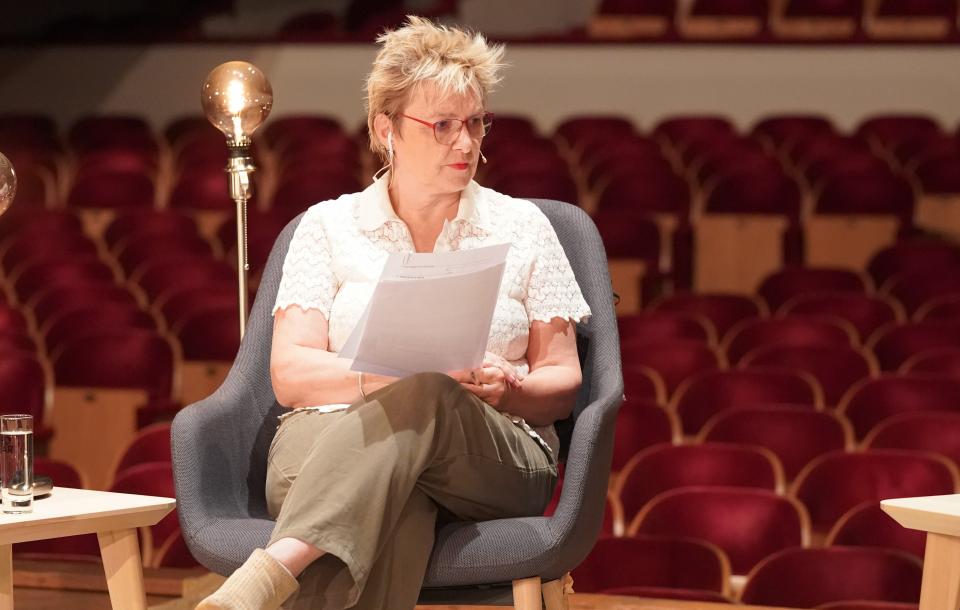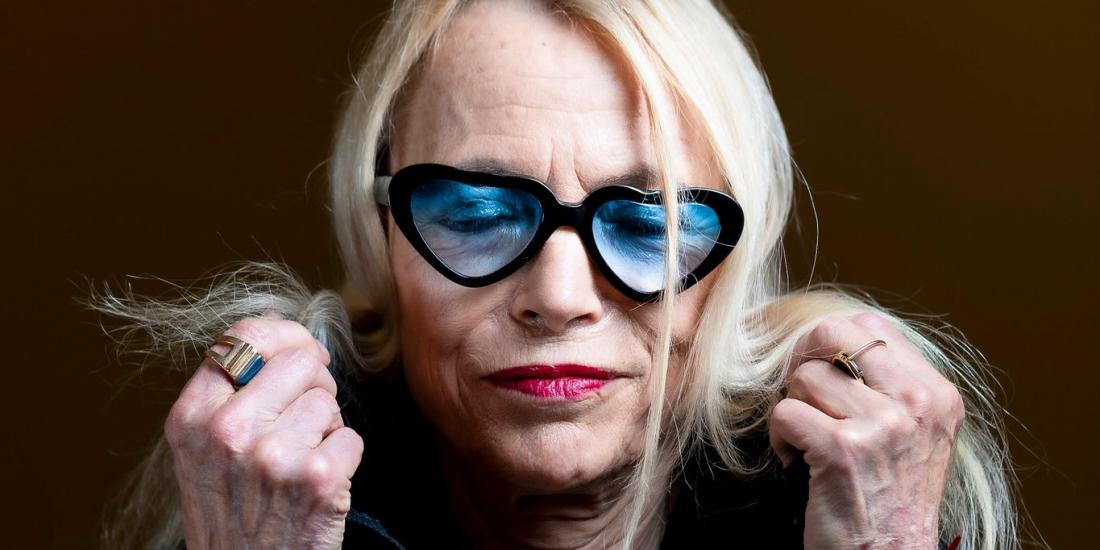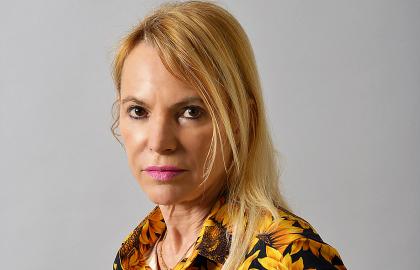
Hello Béatrice Delvaux. On 14 October, you will be interviewing a great intellectual, who, between Le Cercle de Minuit on France 2 and L'heure bleue on France Inter, has interviewed the great figures of the French cultural scene. In your opinion, what does Laure Adler represent?
She represents a relish and a passion for culture in all its forms; she makes culture delightful. She gives us the keys to live better, to feel better. Her passion is contagious and a pathway to discovery. She is the embodiment of journalism, its purpose being to purvey information.
Laure Adler prefers long interviews, an unusual approach in an age driven by the frantic pace of social media. Can the two be reconciled?
We need people like Laure Adler and the guests she interviews to know deeply, and to make sure that social media spreads something more than simplistic ideas. Social media, however, can also be a great purveyor of culture. The volume of podcast sharing, for example, shows that social media can disseminate moments of culture. Things are not just black or white: social media can contribute to the development of culture. It is also very important that institutions continue to welcome artists, and that journalists interview and promote them, as Laure Adler does so well. She has her own way of getting people to open up, which is very contemporary and very intimate, and an incredible talent for making complex issues accessible.
As she does in her book of interviews with Boltanski, a precious testimony since the artist’s recent demise...
Absolutely. Boltanski is an artist who moves me enormously and whose story touched me deeply. I was fascinated by how he realised that he wanted to be an artist. He discovered his talent by being cut off from the world, due both to his personality, and to the Holocaust. As a result, he learned to express suffering in a very powerful manner. Through the tools he used to convey emotion, despair, the relationship to death, loneliness, violence and cruelty, he found an aesthetic that was both commonplace and powerful. Recently, Michel De Muelenaere, one of the journalists at Le Soir, accompanied by photographer Roger Milutin, reported on a huge pile of debris that had been washed up by floods in the Vesdre Valley. The crew needed a full seven minutes of video to film the rubbish on a disused stretch of motorway. The debris, which represented the lives of people torn apart by the violent floods, reminded me of Boltanski’s work because it symbolised both great desolation and the very essence of life. They may seem unimportant, but the little things that we hold dear – a piece of fabric handed down by a grandmother to her granddaughter, or presents that we were given as a baby and that we have lovingly held on to – are suddenly lost; you are forever deprived of your past. The pile of rubbish is in itself a contemporary work, and it reminded me of Boltanski, who also recorded the past. People had produced a Boltanski without knowing it. I then realised the extent to which this man had understood reality by turning it into art.
Isn’t the celebration of life something Boltanski has in common with Laure Adler, who in La voyageuse de nuit strives to redeem and celebrate old age, while society does all it can to deride and conceal it?
I find it incredible that this woman who embodies femininity, who has known power, the proximity of power, and who one might think would have sought to conceal her age, has instead devoted a book to it; she looks it in the eye and bares her soul. I found her approach incredibly bold, humble and generous. Laure Adler does justice to the elderly in “a society that is reactionary, violent and contemptuous of its elders”. She argues that getting old is obviously not very pleasant, but at the same time, age can stimulate creation. She presents old age as a privileged moment, a time when she can focus on what really matters to her. It is a critical yet beautiful book, which also affirms the strength of old age.
As a journalist, do you also perceive the stigmatisation of old age?
I see two major signs of it: one in society, and the other from family. On the one hand, we have tried to solve the problem of older workers through early retirement, excluding them from the working world. As a result, we fail to recognise the specific nature of their contribution: through their experience and their ability to pass on manual or intellectual expertise, but also though values. It says a lot about the world in which we live. On the other hand, we all tend to see our ageing parents as a burden. In the past, the elderly were a part of the family, they were supported, they died at home... To live with your family and die at home is very precious. Yet today we leave our parents to die in nursing homes. The pandemic has highlighted this harsh treatment. Since we could no longer visit our elders, they were left to die alone. And this revealed what we refused to see, but which was obviously true before the pandemic: that being in a nursing home is not a very good way to end your life. Usually, the elderly keep quiet, but Laure Adler speaks about old age, and goes beyond her own experience. She examines the issue in depth, and shares different experiences of old age.
What do you think makes Laure Adler so special?
She is a woman who speaks with great sincerity. It’s very unusual for people to step down from positions of power and to explain why they have done so. On the contrary, she explained how happy she was to leave the management of France Culture and return to her original profession. She even shared her boss’ reaction when she announced her decision: “Laure, nobody leaves a management position to become an ordinary journalist. No one will believe that you were the one who wanted to step down from this position of power.” This resonated with me, because when I made the decision to leave my position as Editor-in-Chief at Le Soir, my director at the time asked me how I was going to go back to being a journalist on the same level as my colleagues. I could tell he was completely puzzled. He couldn’t imagine that I could would to my primary profession without it representing some sort of professional collapse. I was struck by the similarity between Laure Adler’s decision and my own, but also between the reactions of our respective directors. Yet contrary to what they believed, there is no up or down trajectory, there is only a journey towards oneself that we each have to undertake in the most honest and sincere way possible. There are many other lives than the life of power.

